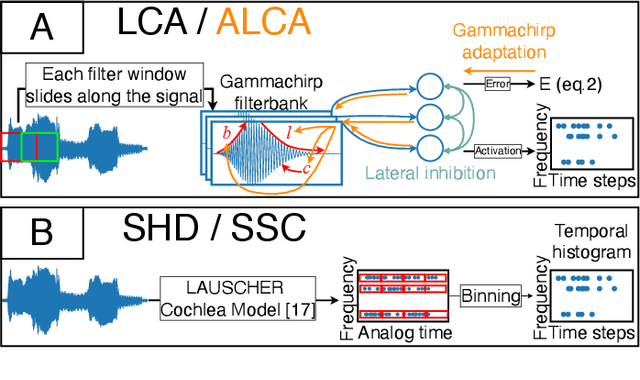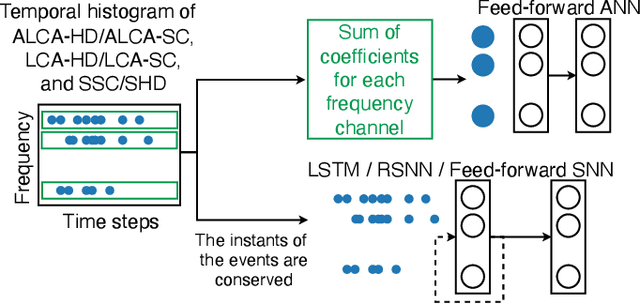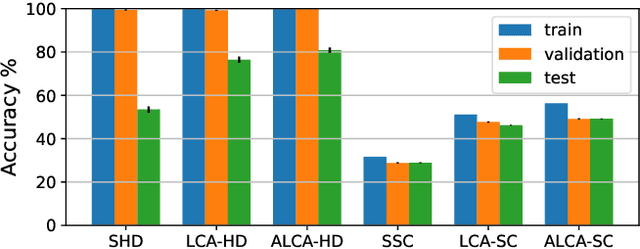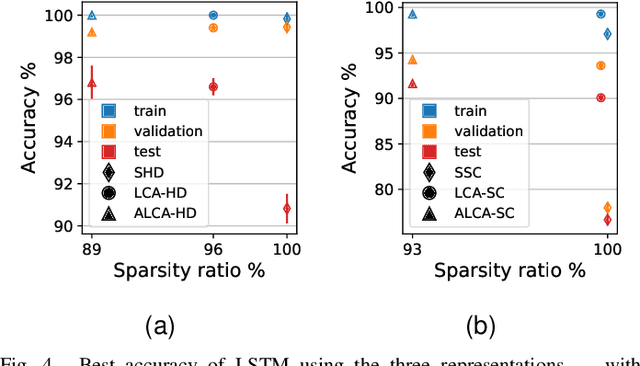Efficient Sparse Coding with the Adaptive Locally Competitive Algorithm for Speech Classification
Paper and Code
Sep 12, 2024



Researchers are exploring novel computational paradigms such as sparse coding and neuromorphic computing to bridge the efficiency gap between the human brain and conventional computers in complex tasks. A key area of focus is neuromorphic audio processing. While the Locally Competitive Algorithm has emerged as a promising solution for sparse coding, offering potential for real-time and low-power processing on neuromorphic hardware, its applications in neuromorphic speech classification have not been thoroughly studied. The Adaptive Locally Competitive Algorithm builds upon the Locally Competitive Algorithm by dynamically adjusting the modulation parameters of the filter bank to fine-tune the filters' sensitivity. This adaptability enhances lateral inhibition, improving reconstruction quality, sparsity, and convergence time, which is crucial for real-time applications. This paper demonstrates the potential of the Locally Competitive Algorithm and its adaptive variant as robust feature extractors for neuromorphic speech classification. Results show that the Locally Competitive Algorithm achieves better speech classification accuracy at the expense of higher power consumption compared to the LAUSCHER cochlea model used for benchmarking. On the other hand, the Adaptive Locally Competitive Algorithm mitigates this power consumption issue without compromising the accuracy. The dynamic power consumption is reduced to a range of 0.004 to 13 milliwatts on neuromorphic hardware, three orders of magnitude less than setups using Graphics Processing Units. These findings position the Adaptive Locally Competitive Algorithm as a compelling solution for efficient speech classification systems, promising substantial advancements in balancing speech classification accuracy and power efficiency.
 Add to Chrome
Add to Chrome Add to Firefox
Add to Firefox Add to Edge
Add to Edge